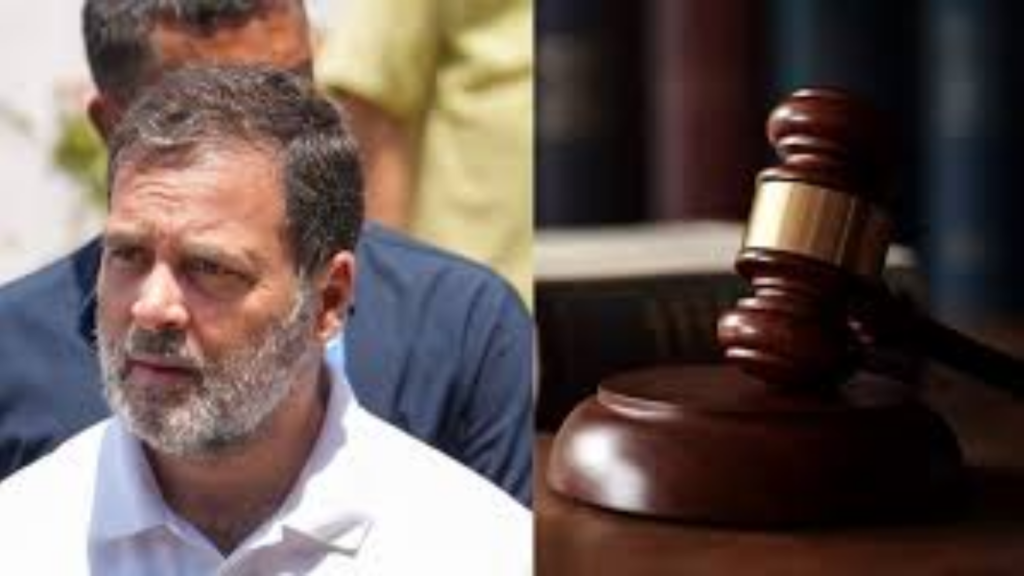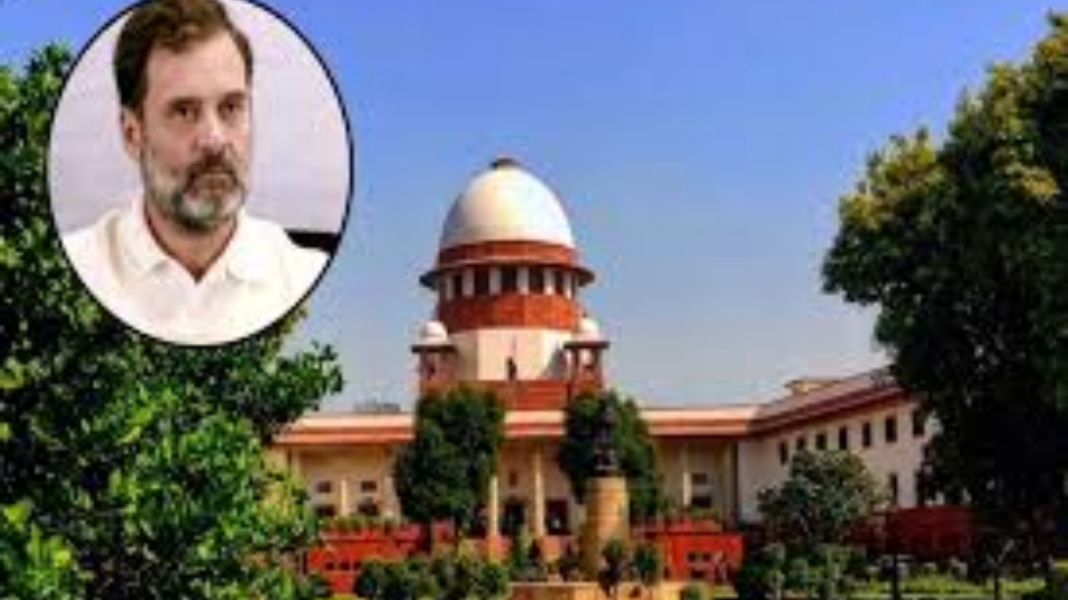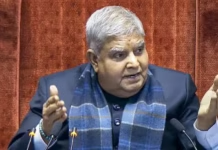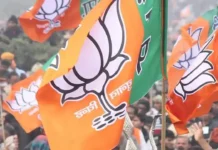
The Supreme Court of India has recently criticized Congress leader Rahul Gandhi for making what it called “irresponsible” comments about freedom fighter Vinayak Damodar Savarkar. The top court warned Gandhi that if he continued to make derogatory remarks against national heroes, he could face serious legal action, including possible contempt of court proceedings. This strong warning was given while the court was hearing Gandhi’s plea to stay the criminal defamation case filed against him in Uttar Pradesh.
The controversy dates back to 2022 when Rahul Gandhi, during his Bharat Jodo Yatra in Akola, Maharashtra, made a statement allegedly calling Savarkar a “servant of the British.” Gandhi claimed that Savarkar had written mercy petitions to the British rulers during India’s freedom struggle, suggesting that Savarkar had compromised the fight for independence.
This statement caused a huge political storm, especially in Maharashtra, where Savarkar is regarded as a respected freedom fighter. Many leaders from different parties, especially the BJP and Shiv Sena factions, slammed Gandhi for insulting a national icon. Following this uproar, a criminal case was filed against Rahul Gandhi in a Uttar Pradesh court under various sections of the Indian Penal Code (IPC), including promoting enmity and public mischief.
The matter reached the Supreme Court, where a bench led by Justices Dipankar Datta and Manmohan heard the case. While the court agreed to stay the summons issued against Rahul Gandhi in the defamation case, the judges did not hold back from expressing their disapproval of Gandhi’s comments.
Justice Dipankar Datta stated clearly, “We will not allow anyone to make statements against our freedom fighters.” He pointed out that freedom fighters like Savarkar are deeply respected and worshiped in different parts of India, especially in Maharashtra. The bench said that reckless statements could create unnecessary divisions and hurt public sentiments.
Justice Datta added, “Next, someone might say even Mahatma Gandhi was a servant of the British.” This statement showed the court’s deep concern about how loose remarks can damage the respect and dignity of national heroes.
The Supreme Court made it very clear that Rahul Gandhi must be careful in the future. If he repeats such irresponsible statements, the court warned that it could initiate contempt proceedings against him on its own, which could have serious consequences.
While the Supreme Court stayed the trial court’s order and gave Rahul Gandhi some relief from immediate court appearances, it was conditional. The court’s message was strong: Gandhi must avoid making any more controversial statements about respected figures like Savarkar.
The court said that the freedom of speech is important, but it should be exercised with responsibility. Public figures, especially politicians, must be even more careful because their words influence millions of people.
Earlier, the Allahabad High Court had refused to quash the summons against Gandhi, pushing the Congress leader to approach the Supreme Court for relief.
After the court’s sharp observations, political reactions poured in from all sides. The BJP welcomed the Supreme Court’s warning, stating that Rahul Gandhi has a history of making careless and disrespectful remarks about revered personalities.
Many leaders from Maharashtra, including those from the Shiv Sena (Shinde faction) and BJP, reiterated that insulting a freedom fighter like Savarkar is not acceptable under any circumstance. They demanded that Rahul Gandhi should publicly apologize for his statement.
On the other hand, Congress leaders tried to defend Gandhi, arguing that questioning historical figures should be allowed in a democracy. However, after the Supreme Court’s comments, even many Congress leaders admitted privately that Gandhi must be more careful with his words in the future.
The Supreme Court’s observations highlight a larger issue — the need to maintain respect for India’s freedom fighters and historical leaders. Freedom fighters like Savarkar, Bhagat Singh, Subhas Chandra Bose, Mahatma Gandhi, and others played critical roles in shaping India’s destiny. Whether or not everyone agrees with all aspects of their lives and ideologies, their contributions to India’s freedom struggle are undeniable.
Loose statements or politically motivated remarks can hurt the sentiments of people who hold these figures in high regard. It also sets a wrong example for younger generations who look up to leaders for guidance.
Freedom of speech is a fundamental right in India, but it comes with reasonable restrictions. The Constitution allows everyone to express their views, but not at the cost of creating hatred, disrespect, or division.
Public figures like Rahul Gandhi have an even greater responsibility to use their words wisely. Their speeches and comments are widely circulated by media and social networks, meaning that their impact is much larger than that of an ordinary citizen.
This case serves as a reminder that criticism should be constructive, and historical debates should be conducted respectfully, without damaging the dignity of national heroes.
Vinayak Damodar Savarkar, also known as Veer Savarkar, was an Indian independence activist, lawyer, and writer. He is known for his contributions to the Hindu nationalist movement and his strong opposition to British rule. Savarkar spent years imprisoned by the British and faced harsh punishments during his lifetime.
While his legacy has always been debated — with some praising him as a patriot and others criticizing some of his political ideas — there is no doubt that Savarkar holds an important place in India’s history.
The Supreme Court’s warning to Rahul Gandhi sends a strong and clear message: Respect for India’s national heroes is not optional. Political leaders must choose their words carefully and avoid making derogatory remarks about figures who have contributed to India’s freedom and growth.
This incident also reminds everyone — whether a leader or an ordinary citizen — that debates about history should be handled responsibly, with dignity and facts, not insults and disrespect.
As the case proceeds, all eyes will be on Rahul Gandhi to see whether he heads the Supreme Court’s warning and exercises greater caution in his public speeches.


































